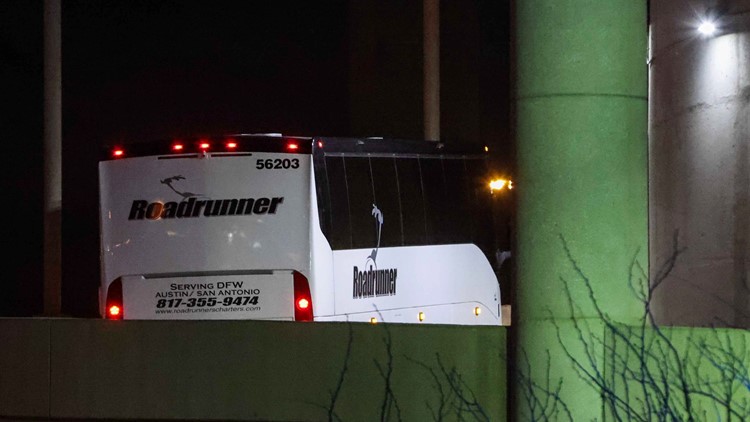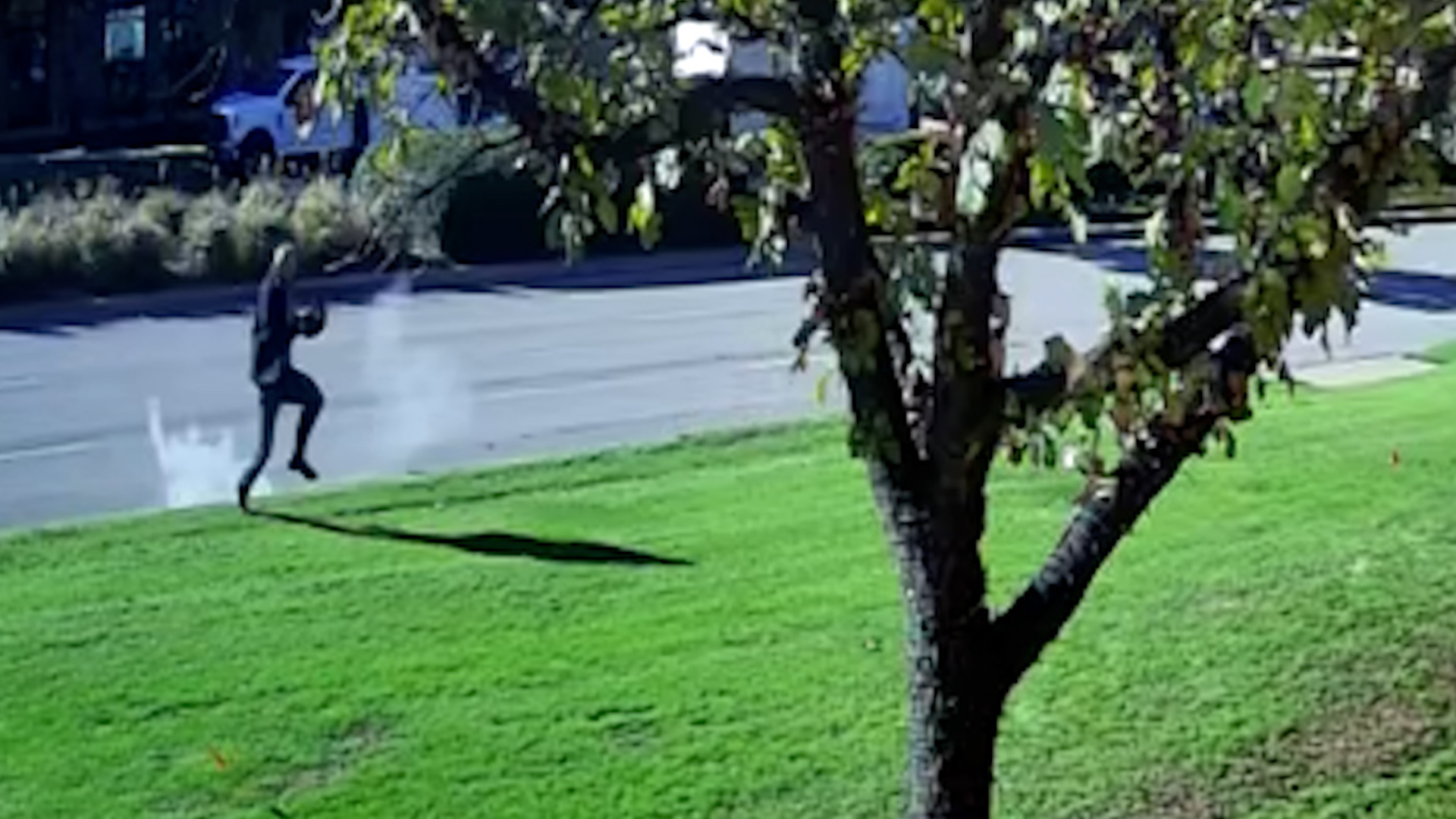DALLAS — Over a month after the Kay Bailey Hutchison Center became an Emergency Intake Site to temporarily shelter unaccompanied young migrant teens, images of the inside have not been made available to the public and the media has not been permitted inside the facility.
Much of the day-to-day routine of the minors is unknown, but one staff member described the shelter to WFAA, on a condition of not being named due to not being authorized to speak by facility operators. The individual, who completed his work in early May, said they wanted to speak out of empathy for the teens and the boys’ inability to speak for themselves.
“It’s overwhelming enough to go into this room and see thousands of beds laid out, that’s traumatizing because it is a never-ending cycle,” said the staff member.
On March 17, The U.S. Department of Health and Human Services opened the convention center to house up to 2,300 unaccompanied male minors between the ages of 13 to 17. Data provided by HHS to WFAA indicates at its peak 2,250, minors filled the convention center.
The living conditions of facilities that house unaccompanied minors have long been under scrutiny due to images of chain-link fences at some border facilities.
The staff member said that although there are no cages at the site, the teens are confined to one building and unable to go outside and see the sun. WFAA did obtain video of some minors at the facility peeking out of the windows at the center.
“The mirror fact that these kids are not able to see what time of day it is or if the sun is out or if it’s dark outside, or even if it’s raining,” he said.
In April, HHS told WFAA they were working on expanding recreation options to include time outside. In May a larger indoor recreation space was made available to the teens.
HHS said the site will close at the end of May.
“If, however, there are teens who have not been unified with their sponsor when it’s time to close, they will be relocated to another facility in ORR’s network,” HHS said via email to WFAA.
A day in the life of a teen at KBH
Teens are divided into pods. Each teen is assigned a cot, which becomes their home for the duration of their stay at the Kay Bailey Hutchison Center, the staff member said.
At 6 a.m. they begin to wake up. The staff member said Red Cross volunteers helped the minors establish a routine. Each pod is allotted time to brush their teeth and begin their day. They are also given time to shower, the volunteer said.
Teens are fed three meals a day and two snacks as recommended by a dietician; HHS told WFAA. The staff member said at the beginning teens were receiving less than 1,000 calories a day. The Red Cross requested a nutritionist to help develop a dietary plan to ensure the teens were properly nourished, the staff member said.
“They were going to bed hungry,” said the staff member. “They’re growing boys.”
Teens can take English as a Second Language classes, with curriculum the Dallas Independent School District provided to HHS. The district said they provided a training to help volunteers teach the students, but the minors are not students of DISD.
RELATED: Changes made at Kay Bailey Hutchison immigration shelter after five children leave, found by police
As the teens’ day progresses, they are allotted recreation time. Buckner International and Trusted World provide activity material and items for the teens, according to HHS.
Some teens play cards, board games, basketball or indoor soccer. The staff member said a movie room was set up for the minors. He recalled the efforts of one individual to get the teens to participate.
“She wanted the boys to go in and entertain themselves for at least 45 minutes,” he said, “I saw the look of concern and she was holding back tears. She was trying to help these boys escape reality for a few minutes.”
The staff member said if the teens do not participate in activities, they can be in their cot all day.
Last week with additional indoor space, HHS says the teens participated in a two-day recreational event. Additional recreational activities are being planned for the next two weeks, as well.
HHS tells WFAA, every three days the teens are tested for COVID. Anyone who tests positive is moved off-site to a medical isolation site at PC Cobb Athletic Complex. The teens are also vaccinated for MMR and chicken pox.
On Sundays, teens can attend worship services.
The emotional toll on volunteers, teens
The staff member said it feels as though the teens and staff are in bootcamp, but also understands the need for security and safety guidelines. HHS tells WFAA that there is on-site security 24 hours a day, seven days a week to ensure the teens’ safety.
The staff member said the job of the volunteers is very hard. They are limited in how they can interact with the teens, who just want to talk or play cards. He said many of the boys long for their family and sometimes look at the volunteers as relatives.
“They [management] tell you don’t play cards with the kids and what are you supposed to do when your morals come into play,” he said.
The staff member said many of the teens have confided in him, often with heartbreaking stories of their experiences. The staff member said one teen explained his 14-year-old sister had two children as a result of rape in their home country.
The young man told the staff member that they were able to escape with her two kids but were separated at the border. He does not know what facility they are at or if they have been reunited with family in the U.S.
WFAA was not able to confirm this specific case as the Office of Refugee and Resettlement [ORR] states that their policy is not to discuss individual cases.
HHS does state on their fact sheet they are aware in some cases ‘children may be escaping violent communities or abusive family relationships, but the choice to come to the United States for safe haven, instead of another community or country they travel through, is in many cases driven by U.S. family connections’.
HHS tells WFAA, teens can meet with caseworkers by appointment and twice a week can call family members or their sponsor.
According to the staff member many of the unaccompanied minors are unaware of the process of reunification.
“On my first day a lot of boys were asking me when they were going to get out, what they were doing there and that they had their parent’s information,” he said.
HHS says the teens are provided with Know your Rights information.
The Dallas EIS attempts to contact their sponsor in the U.S. and release the teen to that individual or transfer to an ORR shelter for longer-term care.
Minors who turn 18 while in the facility are returned to the Department of Homeland Security [DHS] custody and are no longer eligible for services through ORR. HHS did not provide information on the number of teens that have aged out.
RELATED: Sen. Cruz tours Kay Bailey Hutchison Center where migrant teens are being temporarily housed
Population of teens at KBH
The Red Cross phased out of the convention center on April 3, at the request of Federal Emergency Management Agency [FEMA] and HHS, and new contracted care providers assumed management, the Red Cross told WFAA via email on March 30.
Culmen International was hired to assist FEMA and HHS in the operations of the center. Culmen International responded to WFAA’s media inquiry and indicated they are unable to comment on their role. The company prompted WFAA to reach out to HHS.
Catholic Charities remains on site and manages all volunteers.
HHS told WFAA that as of May 11 around 793 teens remain at the facility. In April, 588 new teens were brought to the convention center. Many of the minors are from Guatemala, Honduras and El Salvador.
HHS said they do not anticipate receiving additional teens.
The department did not distinguish how many of the teens aged out of the facility, were reunited with a sponsor, or placed in foster care.
As of May 10, a total of 20,669 children are in HHS care across the country.
The staff member said there are radio stations in Central America that glorify the American way of life. Individuals who are struggling to feed their families hear this as an opportunity.
“Until the narrative stops of America is the greatest place in the world this situation is never going to end,” said the staff member.
WFAA confirmed through multiple documents that the staff member was employed at the facility from March to early May.
RELATED: Texas congressman: Overflow shelters for unaccompanied children could remain open indefinitely



